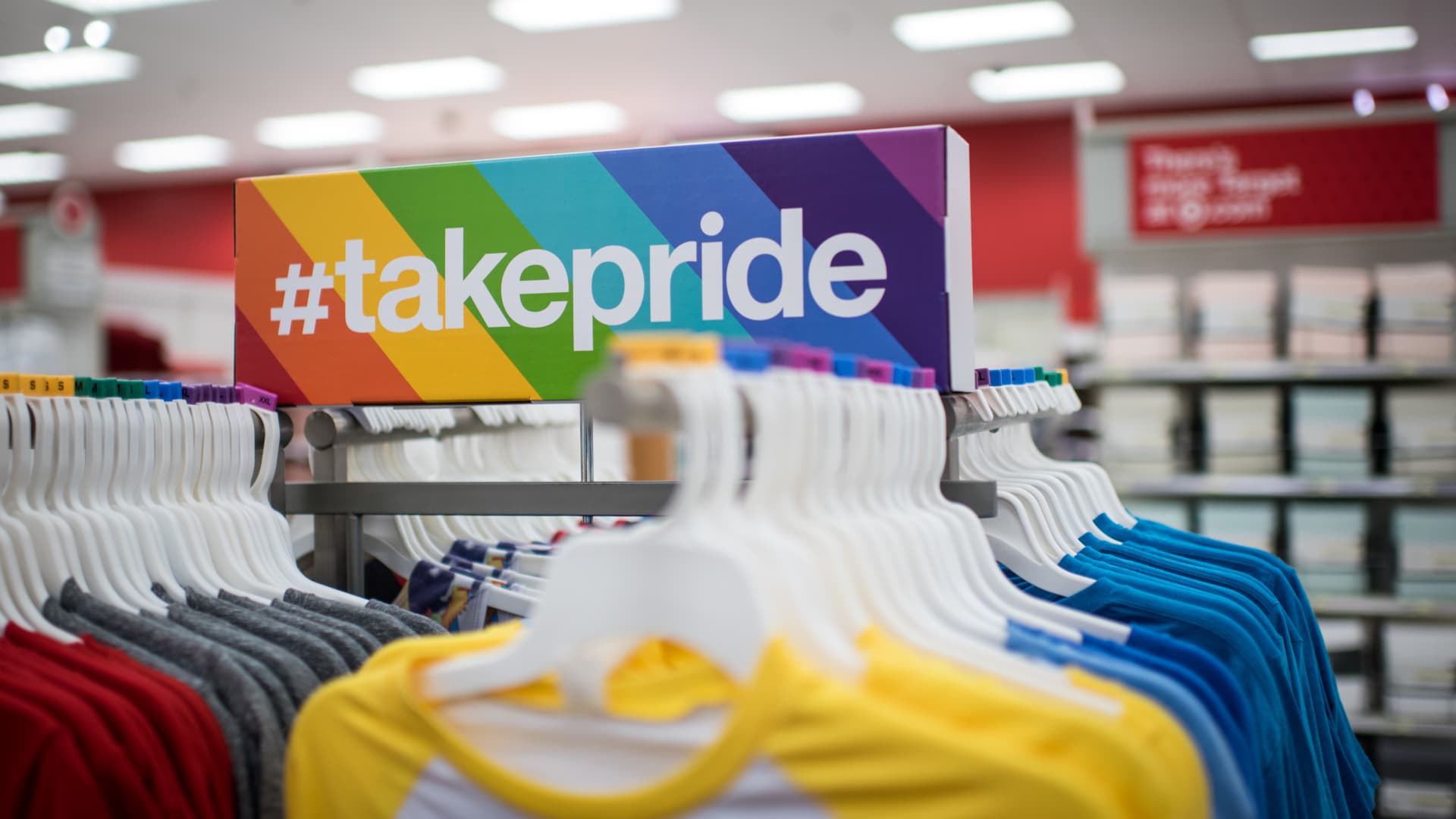Products You May Like
Target CEO Brian Cornell said “negative reaction” to the retailer’s Pride merchandise hurt sales and contributed to the disappointing quarterly results that the company reported Wednesday.
But Cornell stood by the decisions both to celebrate Pride month and to take some items off of shelves or move them to other places in the store after customer backlash. He said the company saw behavior by some shoppers in June that “caused our teams to feel unsafe at work.”
“We certainly saw some angry guests that were intimidating our team members and damaging merchandise and defacing some of the signage,” he said on a call with reporters. “Once we took those actions and addressed the situation, we certainly saw things normalize and we certainly think we took the right steps during that moment in time.”
The backlash against Target, which rippled across social media in videos and comments, speaks to the tightrope that companies must walk as conservative politicians and consumers increasingly condemn corporate diversity and inclusion efforts. Other companies have faced similar boycotts this year. Those include AB InBev‘s Bud Light, which took a financial hit from its partnership with transgender influencer Dylan Mulvaney and subsequent decision not to defend the endorsement. Disney also got caught in the crosshairs of Republican Florida Gov. Ron DeSantis, after the company criticized a state law that critics have called “Don’t Say Gay.”
The Supreme Court’s June ruling against affirmative action has heightened scrutiny of companies’ goals and hiring initiatives, too.
Cornell said on a call with reporters that it will continue diversity, equity and inclusion hiring initiatives. He said the effort helps Target better reflect the communities it is in, which “adds tremendous value for our shareholders.”
For more than a decade, Target has sold products that coincide with Pride month, a celebration of LGBTQ+ people and issues in June. This year, however, the collection provoked a strong response. That reaction came as across the country, politicians pass laws that restrict the civil rights of transgender Americans, set guidelines for the social issues that children should read and learn about in the classroom, and debate the role of corporations in shaping society.
After the sharp response in June, Target removed some merchandise from the Pride collection, but did not say what items it pulled or how many stores the threats and the boycott affected.
The collection included a wide variety of products, from greeting cards saying “I’m Glad You Came Out” and rainbow-themed cake mixes, to T-shirts and tote bags saying “Chosen Family is Love.”
It also included “tuck friendly” swimsuits that allow trans people who have not had gender-affirming operations to conceal their private parts, The Associated Press reported. Some critics falsely claimed those swimsuits, which were only in adult sizes, were also available for children. They also objected to other LGBTQ+-themed merchandise for children, such as clothing and books.
This year was not the first time that Target has seen pushback from conservative groups. The retailer faced another boycott in 2016 after the company adopted a policy allowing transgender employees and customers to use bathrooms and fitting rooms in accordance with their gender identities. The backlash came as North Carolina and other states were passing so-called bathroom bills that banned transgender people from using government building bathrooms in line with their gender identities.
At that time, Target was also going through a stretch of disappointing sales results, but its spokesperson told reporters that the impact to the business from the boycott was “not material.”
When Target reported its results Wednesday, executives declined to estimate the financial hit from the Pride merchandise response.
“To be crystal clear, we can’t isolate the price impact from the many other factors at play in the quarter,” Chief Financial Officer Michael Fiddelke said on a call with reporters, pointing to multiple economic factors, including weaker sales of discretionary items because of inflation.
Cornell said Wednesday that the company will continue to celebrate Pride month and other heritage months. Yet he said Target will also think carefully about timing, presentation, and how it works with national brands and external partners as it puts together its collections.
Some of the merchandise that came under fire was made by vendors rather than part of Target’s own brands.
“At the heart of our purpose is our commitment to bring joy to all the families we serve — and that really is all families — so we want to make sure Target’s that happy place for all of our guests,” he said on the earnings call. “A place where they can recharge and enjoy those shopping experiences and you should expect to see us to continue to do that over the years to come.”
